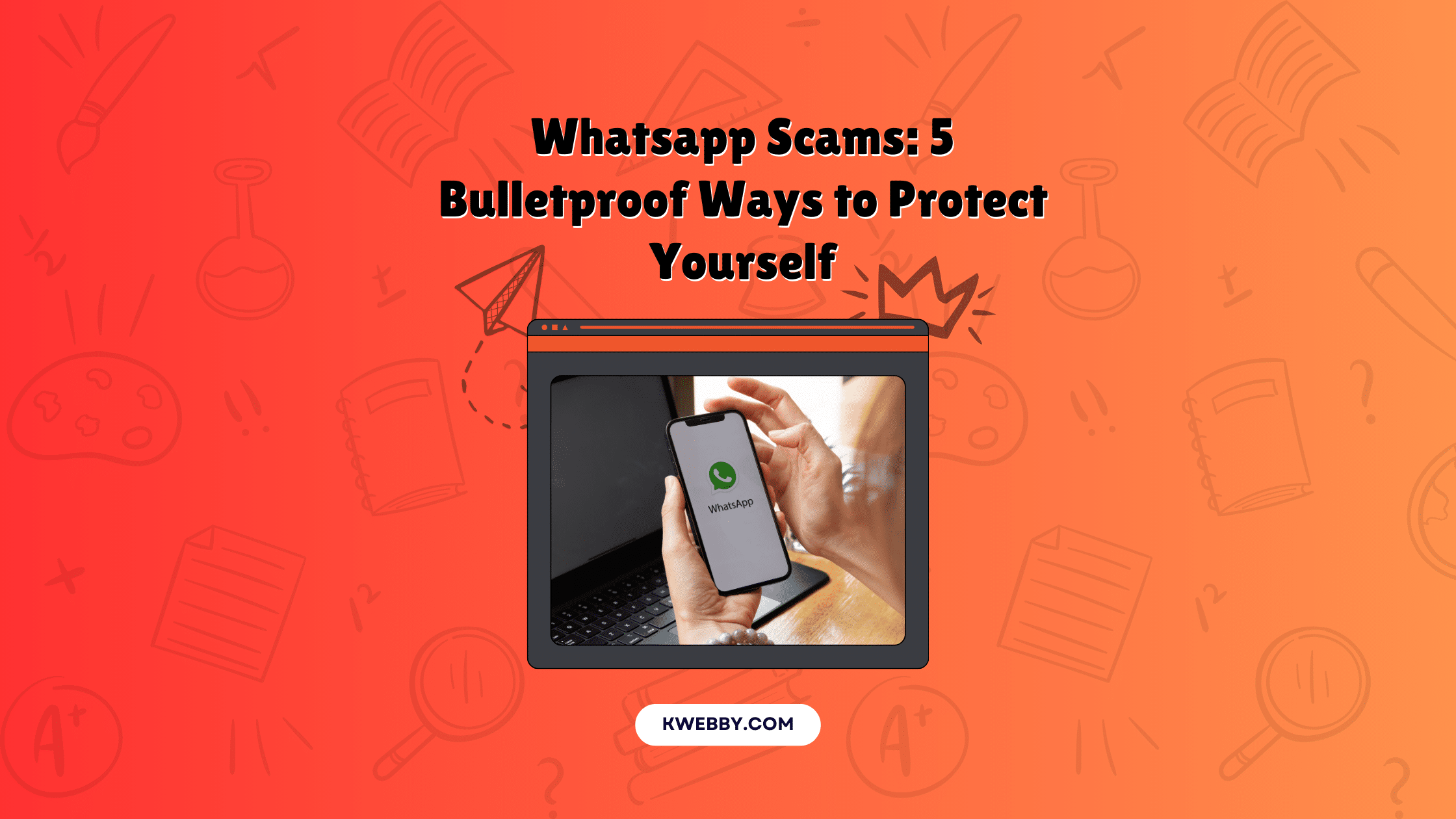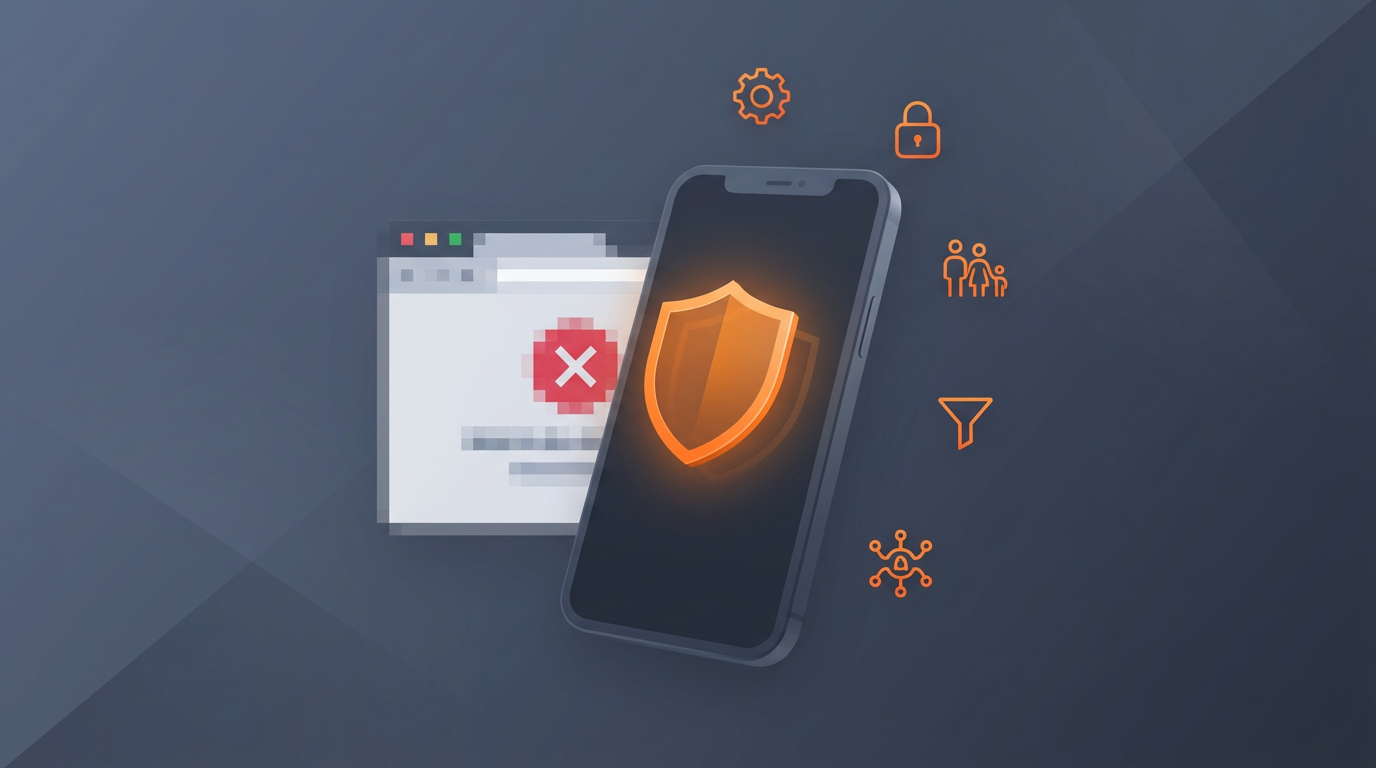In recent years, WhatsApp scams have surged dramatically, affecting countless unsuspecting users around the globe. Leveraging the widespread use of the messaging app, scammers have become adept at exploiting vulnerabilities to obtain personal information and even take over WhatsApp accounts.
From impersonation scams where fraudsters pose as trusted contacts, to phishing attempts disguised as urgent pleas for help, the range of tactics is vast and cunning.
Scammers frequently utilize unknown numbers, compelling victims to divulge sensitive information or transfer money.
Sometimes, these schemes are cloaked in benign forms like WhatsApp Gold or enticing job offers. By understanding common WhatsApp scams and staying vigilant, users can significantly reduce their risk of falling victim to these fraudulent activities.
Always be cautious of scam messages and suspicious calls, and report any dubious activity to the appropriate authorities immediately.
#1 – Block Suspicious Group
If you find yourself added to a WhatsApp group with numerous unknown individuals urging you to invest money, seek financial advice, or pay for a social cause, it’s crucial to act swiftly to protect your personal information and WhatsApp account.
- Leave the Group Immediately: Exit the group to avoid further exposure to potential WhatsApp scams.
- Block the Group: Once you leave, block the group to prevent any further suspicious messages or scam attempts.
- Report the Group: Use the WhatsApp reporting feature to flag the group for inappropriate content or suspicious activity.
- Check for Unknown Numbers: Be wary of any unknown numbers that try to add you to new groups or send you direct messages.
- Secure Your Account: Regularly update your settings to secure your account, using two-step verification and regular privacy checks.
- Stay Informed: Follow tech news and updates about common WhatsApp scams to educate yourself and stay vigilant.
- Avoid Clicking Links: Do not click on any suspicious links or download attachments from unknown WhatsApp messages.
Protecting yourself from scams on the social media platform extends beyond just leaving the group; reporting and being aware of common tactics can aid in defending against identity theft and fraud. Always be cautious of scam messages and suspicious calls, and verify any unusual requests for sensitive information.
#2 – Avoid Tapping on Suspicious Links
One of the most crucial steps to safeguard your WhatsApp account and personal information is to avoid clicking on suspicious links. Fraudsters often use enticing messages promising prizes, discounts, or the need for urgent action to lure unsuspecting users into clicking these links. Such links can lead to phishing websites designed to steal your sensitive information or install malware on your device.
- Verify the Source: Always verify the sender before clicking on any link in a WhatsApp message. Scrutinize the text message for any signs of a scam.
- Use Official Websites: If an offer seems too good to be true, visit the official website directly rather than relying on the link in the message.
- Enable Link Preview: Utilize WhatsApp Web to preview links before clicking them. This feature often exposes fraudulent web stories and fake websites.
- Avoid Public Notices: Be wary of public notices or broadcast messages from unknown numbers touting offers or urgent actions.
- Be Skeptical of Unknown Numbers: Never trust offers or urgent messages from an unfamiliar phone number or a number not saved in your contacts.
- Report Suspicious Activity: If you receive a suspicious link, report the scammer to WhatsApp and the National Fraud Intelligence Bureau.
- Update Your Software: Regular updates to your messaging app can help protect against the latest common WhatsApp scams and malware.
- Ignore Misleading Messages: Don’t let scam messages, phone calls, or video calls pressure you into taking hasty actions.
- Educate Yourself: Stay informed about common WhatsApp scams and impersonation scams by following the latest tech news and business news.
- Secure Account: Enable two-step verification and ensure your privacy settings are up-to-date to protect against scams and identity theft.
By following these steps and remaining vigilant, you can fortify your defenses against WhatsApp fraud and maintain the security of your sensitive information.
#3 – Keep Your Personal Stuff Secure
Safeguarding your personal information on WhatsApp is paramount to protect against scams and fraudulent activities. Here are vital steps to ensure your data remains secure:
- Never Share Sensitive Information: Avoid sharing account numbers, passwords, one-time passwords (OTPs), or bank details over WhatsApp messages.
- Use Two-Step Verification: Activate two-step verification on your WhatsApp account for an additional layer of security, ensuring only you can access your account.
- Beware of Unknown Numbers: If you receive messages from unknown numbers asking for personal information, do not respond and report the number immediately.
- Verify Contacts: Always verify the identity of contacts before sharing any sensitive information, especially in WhatsApp groups.
- Regular Privacy Checks: Periodically review and update your privacy settings to control who can see your personal information and status updates.
- Secure Messaging App: Keep your WhatsApp messaging app updated to protect against the latest vulnerabilities and common WhatsApp scams.
- Exercise Caution with Links: Do not click on links from unknown sources as they could lead to phishing websites or install malware on your device.
- Educate Yourself: Stay informed about current WhatsApp scams, such as the WhatsApp Gold scam, by following tech news and live news updates.
- Report Suspicious Activity: Ensure to report any suspicious messages, phone calls, or video calls to avoid falling victim to impersonation scams or forwarding scams.
- Avoid Public Notices: Be cautious of public notices or broadcast messages that push for urgent action or request personal information.
- Use Secure Platforms: When in doubt, use official websites and secure social media platforms to handle sensitive information rather than relying on WhatsApp.
By implementing these steps and remaining vigilant, WhatsApp users can significantly reduce the risk of falling prey to scams and ensure the safety of their personal and sensitive information. Regularly educating yourself about the common tactics used by fraudsters and keeping your information updated can fortify your defenses against potential threats on this social media platform.
#4 – Use Strong Password Combination
Creating a strong password combination is essential to secure your WhatsApp account and protect your personal information from scammers and fraudulent activities. Here are some steps to help you establish a robust password system:
- Avoid Common Passwords: Don’t use easily guessable passwords like “123456,” “password,” or your name. Instead, opt for a combination of letters, numbers, and special characters.
- Use a Password Generator: Utilize tools like Kwebby Password Generator here to create strong, unique passwords.
- Check Password Strength: Validate the strength of your chosen password using Kwebby’s Password Strength Checker here.
- Change Passwords Regularly: Update your passwords periodically to reduce the risk of your WhatsApp account being compromised.
- Enable Two-Step Verification: Activate two-step verification to add an extra layer of security to your WhatsApp account. This step is crucial in protecting against identity theft and common WhatsApp scams.
- Unique Passwords for Each Account: Do not reuse passwords across multiple accounts. Each account should have a unique password to prevent a cascade of compromises if one password is exposed.
- Beware of Social Engineering: Stay alert to phishing attempts where scammers try to trick you into revealing your password through fake websites or manipulation tactics.
- Monitor for Suspicious Activity: Regularly check your account for any odd activity or unauthorized access, as these might be indicators of a potential compromise.
By following these steps, WhatsApp users can enhance their account security, protecting against various forms of WhatsApp fraud and securing sensitive information. Taking proactive measures and staying informed about the latest scams in tech news and social media can ensure your online safety.
#5 – Aware About recent Scams or Leaks
In today’s digital landscape, it is crucial to stay aware of the latest WhatsApp scams and data leaks that could compromise your personal information. Here are the steps to keep yourself protected:
- Watch for Major Data Breaches: Stay updated on significant data breaches, such as the recent incident where nearly 10 billion passwords were stolen and leaked. Monitoring such news can alert you to potential vulnerabilities.
- Be Cautious of Friend and Family Scams: Recently, scams targeting family and friends have circulated on WhatsApp groups. Always double-check any unusual requests for help or money from known contacts.
- Verify Unexpected Messages: If you receive unsolicited messages requesting personal or financial information, verify the authenticity with the source through another means of communication.
- Do Not Share Verification Codes: Never share your WhatsApp verification code with anyone, as scammers might try to gain control of your account.
- Regularly Change Passwords: Change your WhatsApp account password periodically to ensure it remains secure against ongoing threats.
- Enable Two-Step Verification: Strengthen your security by enabling two-step verification on your WhatsApp account.
- Avoid Suspicious Links: Do not click on links in WhatsApp messages from unknown numbers, as they may lead to phishing websites or install malware.
- Use Trusted Sources for Information: When dealing with sensitive matters, rely on official websites and secure social media platforms rather than WhatsApp messages.
- Report and Block Scammers: If you encounter a suspicious message or phone call, report it to WhatsApp and block the sender immediately.
- Stay Informed: Follow the latest tech news and business news to stay updated on common WhatsApp scams and forthcoming security threats.
By remaining vigilant and regularly updating your security practices, you can protect yourself from evolving WhatsApp scams and preserve the safety of your personal and sensitive information.
Frequently Asked Questions (FAQs)
What should I do if I receive a suspicious WhatsApp message from an unknown number?
If you receive a suspicious WhatsApp message from an unknown number, do not click any links or share any personal information. Instead, report the message to WhatsApp and block the sender immediately to avoid potential scams.
How can I protect my WhatsApp account from being compromised?
To protect your WhatsApp account from being compromised, use strong, unique passwords for your account and enable two-step verification. Regularly update your passwords and avoid sharing your verification code with anyone to prevent unauthorized access.
What are some common WhatsApp scams I should be aware of?
Common WhatsApp scams include phishing attempts through unsolicited messages, impersonation scams where fraudsters pose as friends or family, and scams involving fake websites or malicious links that can steal your sensitive information. Stay vigilant and informed by following tech news and business news to safeguard against these threats.
Conclusion
In conclusion, safeguarding your WhatsApp account from scams and fraudulent activities should be a top priority for every WhatsApp user. By staying informed about the latest WhatsApp scams and common WhatsApp scams, such as the WhatsApp Gold scam and various identity theft tactics, you can protect your personal information and sensitive data.
Always be cautious of unsolicited messages from unknown numbers, especially those that mimic friends or family, as these are often scams intended to steal your information or money.
Activating two-step verification and regularly updating your passwords are crucial steps in securing your WhatsApp account and preventing unauthorized access.
Furthermore, avoid sharing your verification code and be wary of links in text messages or WhatsApp messages, as they may direct you to fake websites designed to harvest your details. By remaining vigilant and proactive, you can greatly reduce the risk of falling victim to WhatsApp fraud and other online scams, ensuring a safer messaging experience on the platform.
Stay updated on tech news and business news, as well as live news regarding public notices and advancements in digital security, to keep your information secure in this rapidly evolving digital landscape.
Test your knowledge
Take a quick 5-question quiz based on this page.












